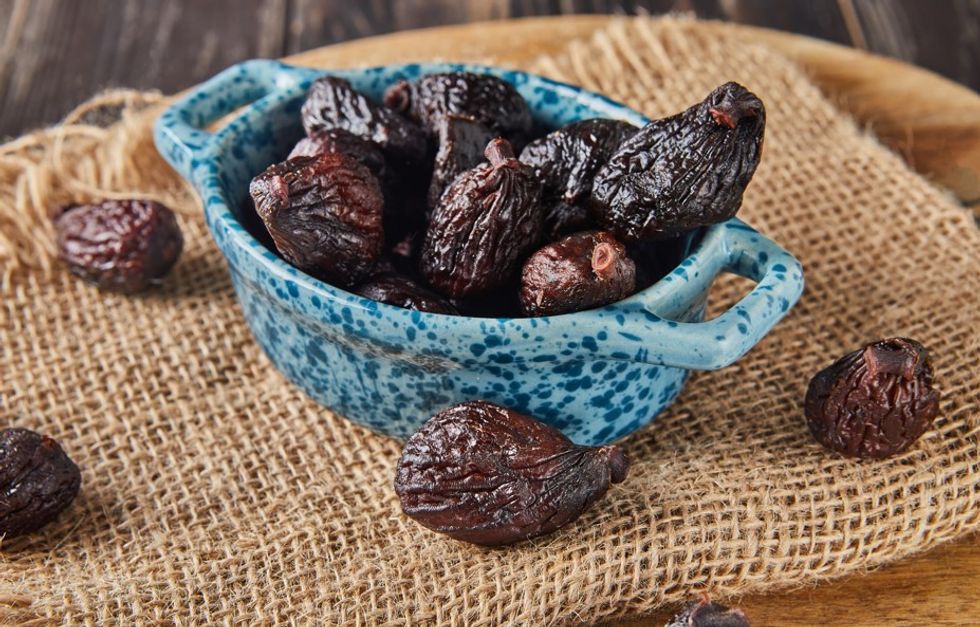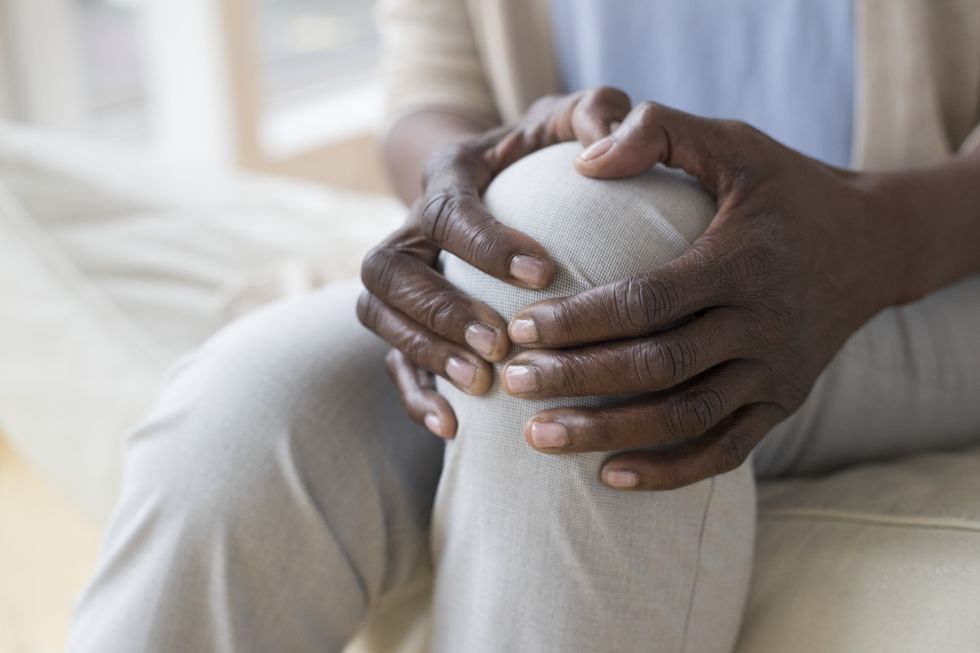
Osteoporosis can affect almost all older people, but it is of particular concern in postmenopausal women.
NHS data released last year showed that more than three million people are currently living with the condition in the UK.
Additionally, half of women over 50 and a third of men over 60 can expect to experience a minimally traumatic fracture due to this condition.
Taking necessary precautions early in life can significantly slow the progression of the disease and, in some cases, reverse it.

Eating prunes may slow the progression of osteoporosis
GETTY
Prunes are one of the most effective natural remedies to treat this disease thanks to bioactive compounds like polyphenols.
Essentially, antioxidants help alleviate the inflammatory pathways responsible for bone loss.
Dr. Peter Dingle PhD recently touted the bone health benefits of prunes on TikTok, sharing: “Prunes are the number one food for bone health, it’s not milk, it’s not dairy products.
“The one food that stands out is dried plums. In fact, dried plums have been shown to not only stop osteoporosis, but reverse it and add bone mineral density to bones.
“There are more than 20 preclinical studies in mice and rats and half a dozen studies in humans.
“The big question is how many can you take? And the answer is that 50 to 100 grams of prunes per day has been shown to provide tremendous benefits for bone health.
A 2022 study published in the Journal of Advances in Nutrition is among the latest research confirming a link between prune consumption and osteoporosis prevention.
The review cites 16 preclinical studies using rodents, which established that dietary supplementation with prunes confers protective effects in both preventing and reversing bone loss.

Eating prunes every day has been shown to prevent osteoporosis in postmenopausal women.
GETTY
“We know that when it comes to bone loss and osteoporosis, inflammation and oxidation are key factors, and prunes (have) powerful anti-inflammatory (properties),” noted Dr. Peter Dingle.
“They are also high in potassium – great for bones – and boron – which are fantastic for bones.”
For optimal bone health, everyone needs enough calcium and vitamin D, stresses the NHS.
The health organization also emphasizes that exercise is one of the building blocks of bone health and helps avoid osteoporosis risk factors.






